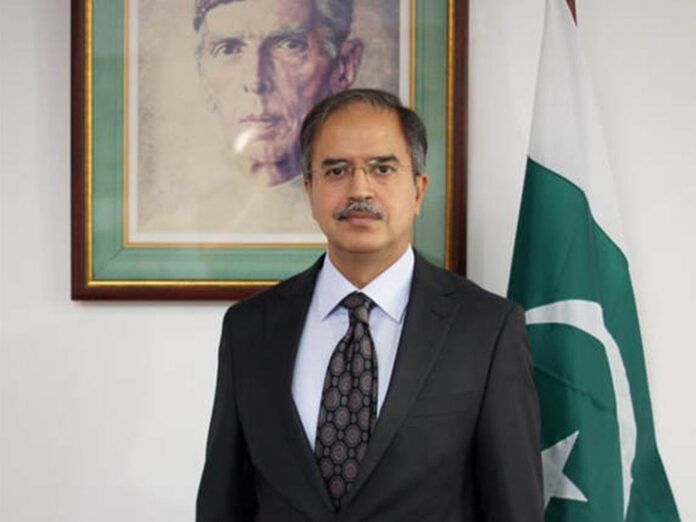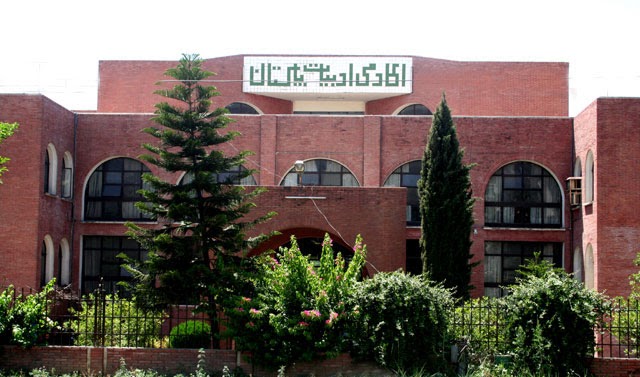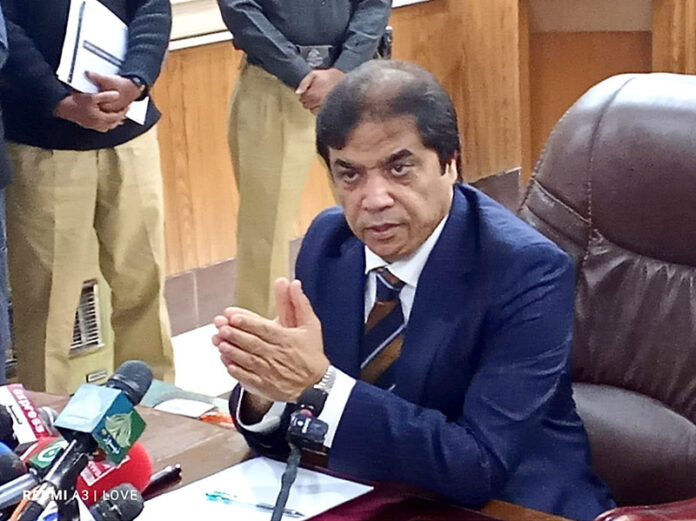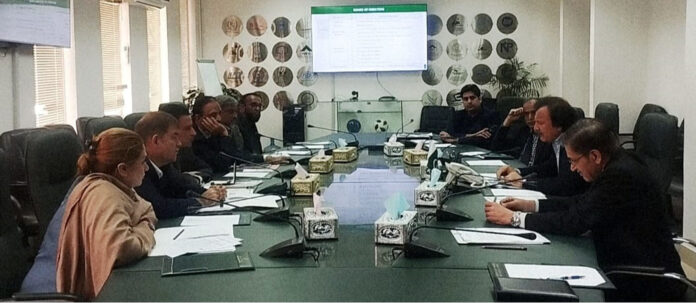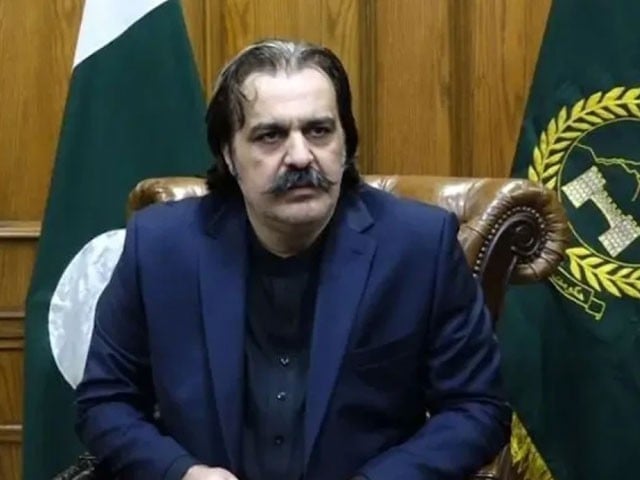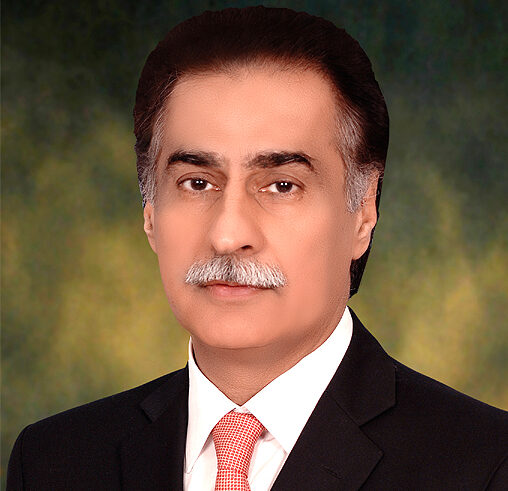Currency rates of NBP
ATC sentences four militants, IGP lauds CTD’s teams
NBP Exchange Rates
Five persons killed in road mishap
Jawad Dero posted as Advocate General Sindh
Young minds lead way in Eid preparations, celebrations: report
Muqam re-inaugurates Jaffar Express from Peshawar Cantt Railway Station
Foreign exchange rates
Consultation program organized to deal drought like situation in Sindh
Vaccinators playing key role in providing healthcare to children : DC
Heavy rain disrupts power supply disrupted from 63 PESCO’s feeders: Spokesman
President, PM condemn killing of five passengers in Kalmat
ISLAMABAD, Mar 27 (APP): President Asif Ali Zardari and Prime Minister Shehbaz Sharif on Thursday strongly condemned the killing of five passengers in a firing incident in the Kalmat area of Gwadar.
The president and prime minister, in their separately issued statements, prayed for peace for the departed souls, early recovery of the injured, and strength for the bereaved families to bear the loss.
“The terrorists are the enemies of the country’s development and prosperity of Balochistan. They cannot see progress in Balochistan,” the president said.
Prime Minister Shehbaz directed the authorities concerned to provide the best possible medical treatment to the injured people and investigate the incident to identify and punish the perpetrators.
Calling the miscreants the enemies of peace and development, he said that their cowardly actions of killing innocent people reflected their brutality.
“We will never allow the anti-state designs of miscreants to succeed,” he resolved.
Prime Minister Shehbaz praised the security forces and law enforcement agencies for thwarting the nefarious designs of the anti-state elements. The entire nation, including myself, is proud of them, he remarked.
Five family members drown as car plunges into river
Pakistan hails Russia-Ukraine accords banning attacks on energy sites, ensuring safe Black Sea navigation
UNITED NATIONS, Mar 27 (APP): Pakistan has welcomed the diplomatic progress towards settling the “tragic” Russia-Ukraine conflict, highlighting the recent limited agreement prohibiting attacks on energy infrastructure followed by another to ensure safe navigation in the Black Sea, hoping the parties would honour their commitments.
“We appreciate the United States and its leadership’s active engagement, also involving the Russian and Ukrainian leadership, in bringing this to fruition,” Ambassador Asim Iftikhar Ahmad, permanent representative-designate of Pakistan to the United Nations, told the UN Security Council on Tuesday.
“We remain optimistic that this new dynamic and the momentum generated by these initial steps would eventually lead to a comprehensive and permanent ceasefire,” he said during a debate on the humanitarian situation in war-shattered Ukraine.
The Pakistani envoy also commended the role of Saudi Arabia and its leadership in facilitating dialogue for promoting peace.
Earlier, UN Secretary-General Antonio Guterres also welcomed the diplomatic progress, saying his good offices remain available to support all efforts towards a lasting peace in Ukraine.
In his remarks, Ambassador Asim Iftikhar Ahmad reiterated Pakistan’s position on the Ukraine conflict, saying Islamabad has enjoyed friendly relations with both the parties, advocating dialogue and diplomacy, cessation of hostilities and peaceful resolution of this conflict.
“We believe that the security concerns, which remain at the center of this conflict, can only be addressed through an inclusive approach, which in turn would ensure the sustainability and durability of peace in the wider region.”
Voicing deep concern over the humanitarian situation, the Pakistani envoy said that the conflict, now in its fourth year, has caused immense human suffering and massive damage to infrastructure, economy, and society that has had vast consequences for the global economy, particularly for the developing countries.
“Every human life matters, and is not merely a number.”
Pakistan’s position on these as other conflicts, he said, was based on adherence to the principles of the UN Charter, self-determination for peoples, respect for sovereignty and territorial integrity of states and non-acquisition of territory by the threat or use of force.
“Consistent with the Charter, states must also implement international agreements and abide by their respective obligations , and respond to the legitimate security interests of all states.”
The ambassador pointed out that the protection of civilians and infrastructure was an obligation under international law and international humanitarian law, urging full and consistent adherence to these principles by all parties.
In this regard, he underscored the need for ensuring access and protection for humanitarian workers in conflict zones, and said the Third Geneva Convention, which governs the treatment of prisoners of war (POWs), was binding on all parties.
Opening the debate, a senior UN official warned that continuing daily attacks and humanitarian aid cuts were hitting Ukrainian civilians hard.
Since March 1, there has not been a single day in Ukraine without an attack in which civilians were harmed, Joyce Msuya, deputy head of the UN humanitarian affairs office, told the Council.
“This, and the severe global funding cuts for humanitarian operations, including for Ukraine, is further reducing our capacity to provide life-saving aid,” she said.
The UN humanitarian programme for Ukraine this year calls for $2.6 billion in aid, but it is only 17 percent funded so far.
“Recent funding cuts have led to a reprioritization of Ukraine response efforts,” said Msuya, expressing concern in particular about women and girls.













